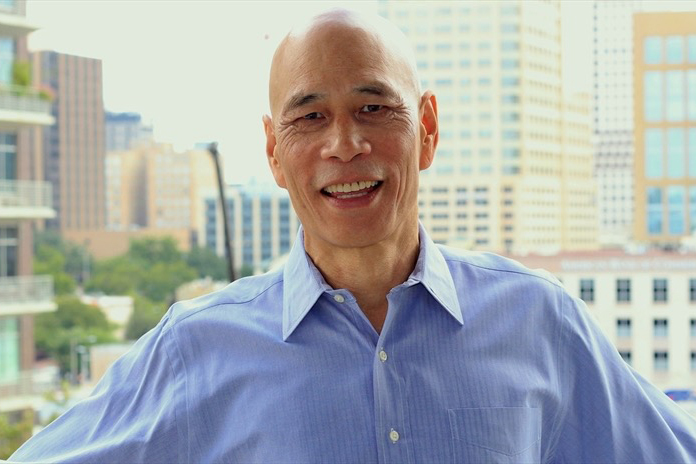With the onslaught of COVID-19, life around the world has changed dramatically. People yearn for a return to their normal lives, and when that doesn’t happen, overwhelming sadness and conflicting feelings can emerge. In other words, says Kelvin Chin ’83, we are experiencing grief. Chin, an international expert in stress management, meditation, and grief, explains: “We feel sadness because we miss our normal daily life, and we are conflicted because we have to be secluded for our own health and others’, but we don’t like it.”
This generation is not alone in those feelings. “That’s the scenario that has happened over the millennia during the time of every pandemic that humankind has known,” Chin observes. “Smallpox in Ancient Rome, bubonic plague in the Middle Ages, flu epidemics in the early 20th century, and now the COVID-19 pandemic. To name a few.”
Chin is the founder and executive director of the Overcoming the Fear of Death Foundation and the Turning Within Meditation Foundation. A meditator since the age of 19, he was part of the first US studies on mind-body medicine led by Boston cardiologist Dr. Herbert Benson.
During Chin’s subsequent career in leadership roles at law firms and legal services companies, he maintained his interest in meditation, eventually becoming a leading author, speaker, and teacher in the field. He taught the first meditation classes at West Point Military Academy, and in the US Army on the DMZ (De-Militarized Zone) in Korea. He has presented at Raytheon, AIA International, Dartmouth College (his alma mater), and Yale University, and has taught numerous CLE and CEU seminars for the legal and healthcare industries.
Chin believes that people have the choice either to recover from grief and be more fully present in life going forward or to seek solace in temporary distractions. He cautions that the temporary fix is often the easy way out, but not the most effective. “Self-medicating with alcohol or drugs, binge-watching Netflix, and the like, are just a BAND-AID. After it wears off, you’re still grieving. You still feel really sad, upset, and conflicted about how you’re feeling,” he explains.
The key to recovering from grief is to reduce and eliminate the “overwhelming” part of sadness and resolve the conflicting feelings, Chin says, offering the following suggestions on how to achieve that outcome:
- Acknowledge your feelings. Do not bury your emotions. Be honest with yourself.
- Remind yourself that the uncertainty you are feeling is normal and natural. This is a worldwide pandemic, and everyone is affected. You are not alone in how you feel.
- Talk about your feelings openly with someone you trust who is a non-judgmental listener (a close friend, family member, or therapist).
- Control what you can, and let go of trying to control what you can’t.
- Take action. If you were laid off, look for a job that you can do from home, exercise in your house, go for a walk in the sunshine, nourish your body with healthy food, watch less news. (Remember, you control the remote!)
- “Turn within” through meditation or other means to relax and strengthen your immune system. This is important to reduce your anxiety so your “fight or flight” response is not excessive.
- Maintain perspective. During World War II, 3 percent of the world’s population (70 million people) died in six years (equivalent to 228 million people today). As terrible as those huge losses were, the world rebounded fairly quickly afterwards.
Chin hopes that the lasting impact of this most recent scourge is recognition of the strong human spirit worldwide. “At the end of this pandemic—and, yes, it will eventually end—my hope is that it will inspire us to be less tribal. COVID-19 reminds us that we are all human beings; the virus doesn’t care about color, religion, or beliefs,” says Chin. “It shows us that we all share basic fears, concerns, and needs. In the end, making sure we all have enough food, shelter, and yes, hand sanitizer and toilet paper, is all in everybody’s best self-interest.”


